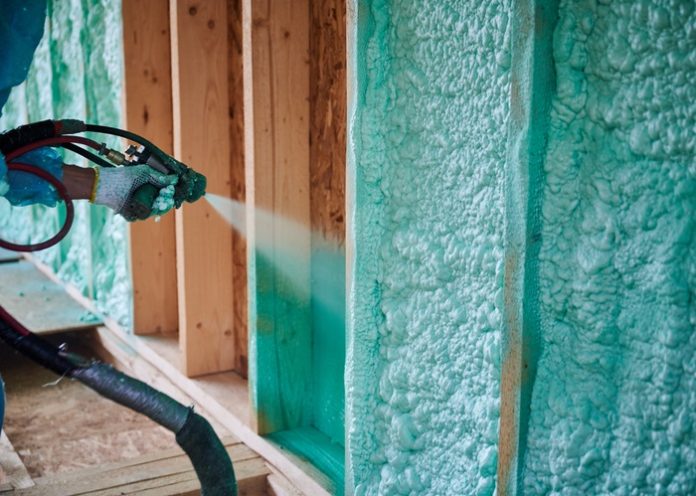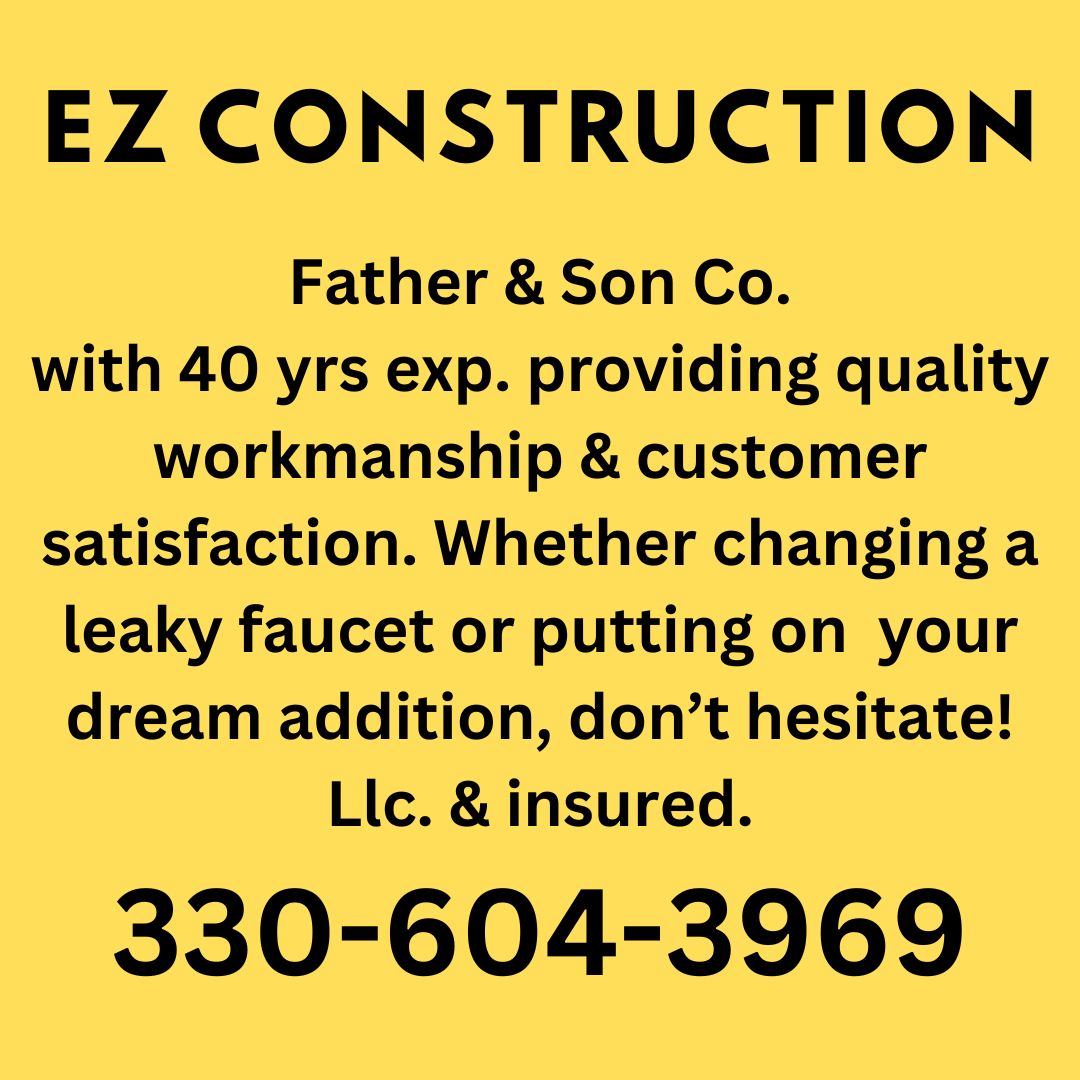In the quest for a more energy-efficient and comfortable living space, homeowners and builders alike are turning to innovative solutions that conserve energy and promote a healthier indoor environment.
Spray foam insulation is a revolutionary product in home improvement that stands out for its exceptional ability to seal homes from air and moisture intrusion, save on costly utility bills, and reduce noise.
As we explore the multifaceted benefits of spray foam insulation, we’ll uncover how it represents a significant advancement in building technology, offering a smart, sustainable choice for those looking to elevate their home’s performance.
The Problem with Traditional Insulation Materials
Traditional insulation materials, such as fiberglass and cellulose, have long been the go-to for homeowners seeking to improve their home’s energy efficiency. However, these materials are known to have air and moisture control limitations.
Fiberglass batts, for instance, can leave gaps and seams that allow air to escape, causing drafts and cold spots. This can lead to uneven temperatures throughout the home and higher energy bills. These materials can also be prone to mold growth and deterioration over time, reducing their effectiveness.
Cellulose insulation, while offering better air sealing than fiberglass batts, is still not completely airtight due to its loose-fill nature. It also tends to settle and create gaps over time, compromising its performance.
The Rise of Spray Foam Insulation
Spray foam insulation addresses the shortcomings of traditional insulation materials by providing superior air sealing and thermal resistance. Made from polyurethane, it is applied as a liquid that quickly expands and hardens into a solid foam, conforming to any space and creating an airtight seal.
This unique application process allows spray foam insulation to reach areas other insulation materials cannot. It’s ideal for difficult-to-insulate spaces like attics, crawl spaces, and rim joists. It also fills gaps and voids in the building’s structure, preventing air from escaping and enhancing overall energy efficiency.
Furthermore, spray foam insulation has a higher R-value (a measure of thermal resistance) than traditional insulation, meaning it provides better insulation and can help reduce energy consumption by up to 50%. It also has excellent moisture control properties, preventing mold growth and improving indoor air quality.
The Comprehensive Benefits of Spray Foam Insulation
Aside from its superior insulation qualities, spray foam insulation offers several other benefits, making it an attractive choice for homeowners and builders alike. Learn more about this from your local contractor, but until then, here are some benefits worth mentioning:
Energy Savings
As mentioned, spray foam insulation can significantly reduce energy consumption by creating an airtight seal in homes. This means less heat or cool air escapes through cracks and gaps, lowering utility bills. Some studies have shown that homeowners can save up to 40% on their energy bills with spray foam insulation.
Noise Reduction
In addition to limiting air and moisture infiltration, spray foam insulation is a great sound barrier. Its dense composition helps absorb sound waves, reducing noise from outside traffic or other sources inside the home. This makes it ideal for homes in busy neighborhoods or nearby loud areas.
Healthier Indoor Environment
Spray foam insulation can also help improve indoor air quality by sealing gaps and preventing moisture intrusion. It prevents the growth of mold and mildew, which can cause respiratory issues and other health problems. It also helps keep out pollutants and allergens, creating a healthier living space for you and your family.
Additional Factors to Consider
While spray foam insulation offers numerous benefits, it’s important to consider several factors before deciding the right choice for your home improvement project. These include:
- Initial Investment: The cost of installing spray foam insulation is generally higher than that of traditional insulation materials. Homeowners should weigh the upfront expenses against the long-term energy savings and benefits.
- Professional Installation: Due to its chemical composition and application process, professionals should only install spray foam insulation. This ensures proper and safe installation but also adds to the overall cost.
- Type of Spray Foam: There are two main types of spray foam insulation: open and closed. Each has its specific applications, benefits, and limitations. Homeowners should understand the differences and choose the one that best meets their needs.
- Building Code Compliance: Depending on the location, there may be building codes and regulations regarding spray foam insulation installation. Ensuring that the chosen insulation type and installation method comply with local requirements is crucial.
- Environmental Considerations: While spraying foam insulation effectively reduces energy consumption, the chemicals used in its production and application have raised environmental concerns. It’s important to look for products with lower Global Warming Potential (GWP) designed with eco-friendliness in mind.
- Longevity and Durability: Spray foam insulation is known for its durability and can last the lifetime of the home. However, homeowners should understand the maintenance requirements and potential for degradation over time, especially in environments with extreme temperatures or high humidity.
Frequently Asked Questions
- Is spray foam insulation safe for my family and pets?
Yes, as long as it is installed by a professional and the area is properly ventilated during installation. Once cured, spray foam insulation is inert and does not emit any harmful chemicals.
- How much does spray foam insulation cost?
The cost can vary depending on factors such as location, size of the project, and type of spray foam insulation used. On average, homeowners can expect to pay 1.5-3 times more than traditional insulation materials.
- How long does spray foam insulation last?
With proper installation and maintenance, spray foam insulation can last the lifetime of a home. It is not prone to settling or degradation like other insulating materials.
- Can I install spray foam insulation myself?
No, it is not recommended to install spray foam insulation yourself. The application process requires specialized equipment and training to ensure proper installation and safety. It’s best to hire a professional for this type of project.
Conclusion
As homeowners become more conscious of energy efficiency and environmental impact, the demand for spray foam insulation continues to grow. Its numerous benefits, including superior insulation, noise reduction, and improved indoor air quality, make it an attractive choice for home improvements.
With proper consideration of factors like cost, type of spray foam, and compliance with building codes, homeowners can enjoy the long-term benefits of this innovative insulation material. So, if you want to improve your home’s energy efficiency and overall comfort, consider spray foam insulation as a top option.























